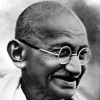“ The more cunning a man is, the less he suspects that he will be caught in a simple thing. ”
Fyodor Dostoyevsky, Crime and Punishment (1867). copy citation
| Author | Fyodor Dostoyevsky |
|---|---|
| Source | Crime and Punishment |
| Topic | |
| Date | 1867 |
| Language | English |
| Reference | |
| Note | Translated by Constance Garnett |
| Weblink | http://www.gutenberg.org/files/2554/2554-h/2554-h.htm |
Context
““Yes, that is what he was reckoning on, that I should not have time to reflect, and should be in a hurry to make the most likely answer, and so would forget that the workmen could not have been there two days before.”
“But how could you forget it?”
“Nothing easier. It is in just such stupid things clever people are most easily caught. The more cunning a man is, the less he suspects that he will be caught in a simple thing. The more cunning a man is, the simpler the trap he must be caught in. Porfiry is not such a fool as you think....”
“He is a knave then, if that is so!”
Raskolnikov could not help laughing. But at the very moment, he was struck by the strangeness of his own frankness, and the eagerness with which he had made this explanation, though he had kept up all the preceding conversation with gloomy repulsion, obviously with a motive, from necessity.”
source



